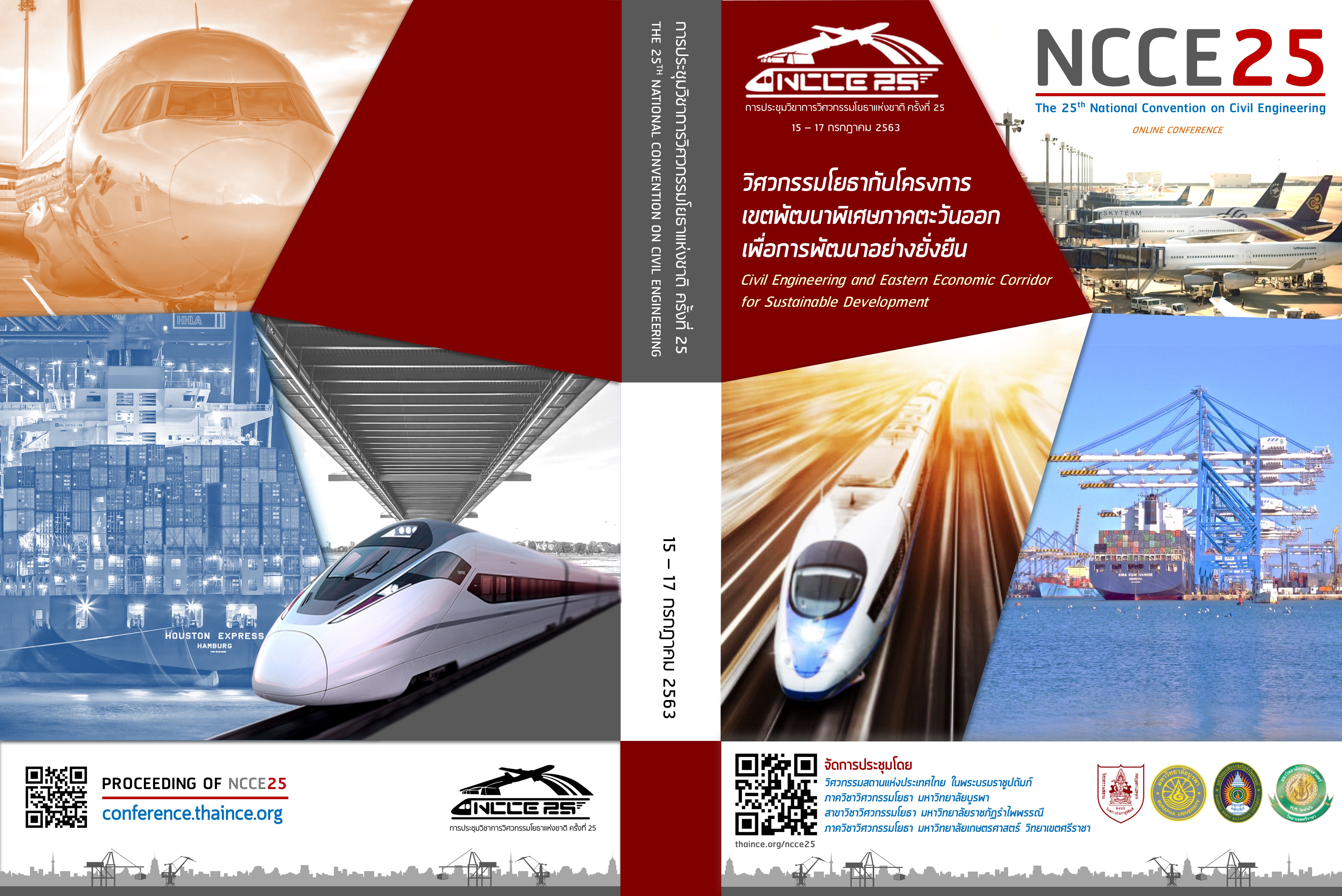Crack closing performance of self-healing mortar using microbial induced calcium carbonate precipitation bacterial spores
Keywords:
Self-healing cement, Compressive Strength, Crack closing performance, bacterial spores, MICPAbstract
The aim of this study is to investigate the crack closing performance of self-healing mortar containing microcapsule of microbially induced calcium carbonate precipitation (MICP) bacterial spores. The bacterial spores are encapsulated by sodium alginate to protect the bacterial spores under the severe conditions of mortar mixing. The amounts of microcapsule were varied at 0%, 0.5%, and 1.0% by cement weight. The results showed that the use of microcapsules increased the healing ratio of mortar. The crack of specimen containing 1.0% of microcapsules was completely healed within 7 days. The effect of microcapsule dosages on the compressive strength of mortar was also investigated at 28 days. It was found that the microcapsule content slightly influences on the compressive strength of mortar. On the other hand, the compressive strength of mortar remarkably decreased when the bacterial nutrients were added in the mortar.
Downloads
Downloads
Published
How to Cite
Issue
Section
License
บทความทั้งหมดที่ได้รับการคัดเลือกให้นำเสนอผลงานในการประชุมวิชาการวิศวกรรมโยธาแห่งชาติ ครั้งที่ 25 นี้ เป็นลิขสิทธิ์ของ วิศวกรรมสถานแห่งประเทศไทย ในพระบรมราชูปถัมภ์



